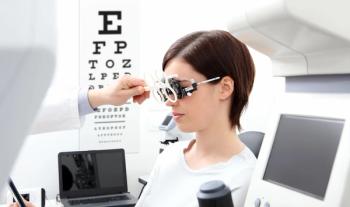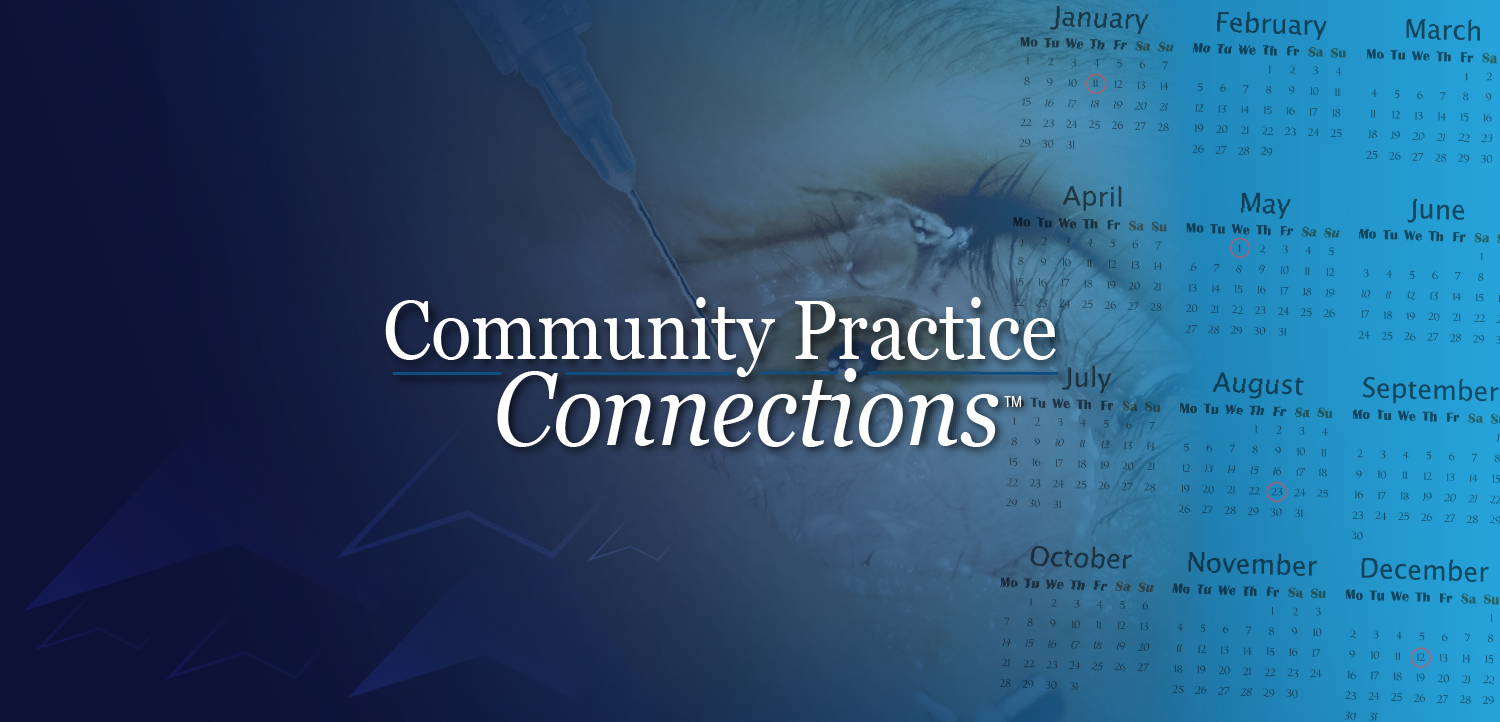
ASCRS welcomes ODs during IOMED program
San Francisco-At the recent American Society of Cataract and Refractive Surgery (ASCRS) meeting, optometrists joined ophthalmologists for the Integrated Ophthalmic Managed Eyecare Delivery Model (IOMED) track. The track consisted of three panel discussions during an afternoon session followed by a reception, plus 13 additional courses chosen for Council on Optometric Practitioner Education (COPE) approval.
The three panel discussions involved ODs as both panelists and moderators. Topics included new technology, practice management, and managing cases in an integrated setting. COPE-approved topics were mainly clinical in nature, such as post-LASIK ectasia, IOL power calculations, and corneal topography and imaging.
“I think the symposium went very well,” said IOMED task force Chairperson Stephen S. Lane, MD, of St. Paul, MN. “I’m very upbeat and excited about it. All feedback has been positive. From an attendance standpoint, we always would like to see a greater number, but for a first go-round, it was excellent. The highlights are the participation and the fact that ASCRS made a significant effort to reach out to this group of ODs, who responded quite well. To see the support and participation in the event was most gratifying.”
The next step is growing the IOMED portion of the meeting with the help of ODs who attended this year’s meeting. In addition, the IOMED task force will be upgraded to a full standing committee of ASCRS. The IOMED committee will include 4 ODs, 4 MDs, an OD co-chair, and an MD co-chair. Said Dr. Lane: “Creating a committee shows the commitment of ASCRS to this concept. The committees are part of ASCRS and are integral in the determination of how things are run-not just from an educational standpoint, but politically as well. ASCRS takes this very seriously and has every intention of making it bigger.”
IOMED task force member David Geffen, OD, of San Diego, agrees that a wider range of optometrists should attend an integrated care delivery meeting. “Integrated means you are serving patients together,” he said. “Even people on the panel have different opinions about what that means. This program is trying to move optometry forward. ODs and MDs need each other. There are bigger battles, like managed care and Medicare. We can fight those battles better together instead of being divided.”
Communication is key in an integrated practice, said Norfolk, VA, optometrist Walt Whitley, who was part of the case management panel. “I was honored to be part of that panel, and the biggest takeaway from the meeting is the trust involved between OD and MD,” he said. “There will be integrated eye care in some form. We need to keep working on our relationships with other doctors, whether they’re ophthalmologists or primary-care practitioners. We’re all going to have to work together to meet our patient care needs.”
Members of the IOMED task force met with a group of optometrists who have been unhappy with the exclusion of private-practice optometrists from the meeting. Said Dr. Lane: “We had a nice dialogue. We understand the issues that private-practice optometrists have. We understand that many of them would like to attend. We are going to look for potential ways to include more optometrists. There’s a lot of common ground for them to participate, and we’ll try to work with this group to see where there are some common things we can share.”
In related news, the American Optometric Association (AOA) recently announced the launch of an integrated eyecare project team. This team will analyze models of care and set out the elements essential to developing an ideal system that is efficient, productive, and patient-centric.
“The main focus of our project team will be to analyze existing models of integrated care and to define those elements that result in integrated care teams that deliver high quality, efficient patient care,” Iselin, NJ, optometrist Christopher Quinn, project team chair, said in a statement. “Over the past several years, ASCRS and several prominent ophthalmologists have been promoting their version/vision of ‘integrated eye care.’ Unfortunately, in my understanding, their model takes a very limited perspective of the potential benefits of integrated eye care delivery, focusing on the benefit to individual ophthalmologists. Optometry’s vision for how our professions can work together will be focused on better patient care and outcomes.”ODT
(See “Certain ODs welcome to participate in new ASCRS integrated program” in the February issue for more details.)
Newsletter
Want more insights like this? Subscribe to Optometry Times and get clinical pearls and practice tips delivered straight to your inbox.
















































.png)


